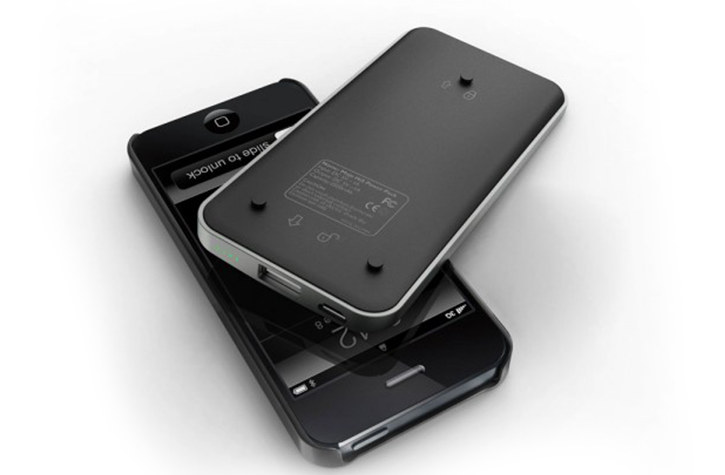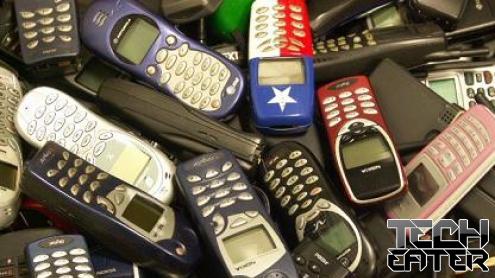I think I’m addicted to my phone.
I had this epiphany last week, as I was sitting down charging it on the floor of the Port Authority bus terminal. Anyone who’s been there understands the gravity of that statement. It’s a place so disgusting, you almost catch hepatitis from walking by it.
Yet, there I was, risking cholera, polio and other now-defunct diseases just so I wouldn’t have to take the subway home without a distraction.
There was a time, not too long ago, when smartphones didn’t exist. T9 and predictive text ruled with an iron fist. Texting, while doable, was a chore. Accessing the Internet on your phone? HA! It was such a painful experience, nobody chose to do it.
Life was simpler then. The smartphone changed everything.
In 2003, The first real “smart phone” was invented. It was called the BlackBerry (nicknamed the CrackBerry due to its addictive nature), and it turned the business world upside down. Everywhere you went, people in suits were staring at their phones like they held the secret to life. The only way you could escape it was if your profession didn’t require it. Then, in 2007, the iPhone was invented and the world around us changed forever.
All of a sudden, the Internet was at our fingertips. Google was just a pocket length away. Boredom was a distant memory, as games and apps allowed us to maintain a constant state of distraction. Social media went from a cool idea to a necessary activity. The world could check in on each other all the time. We’d never been more connected.
That “connection” came with a price, though. Someone once said the quickest way to failure is to compare yourself to other people. Smartphones allow us to fail in record time.
From browsing Facebook and seeing “friends” doing big things, to text message conversations where not getting an instant text back feels like a slight, we’re in a constant cycle of a need for validation. We need that notification of a retweet to feel like someone is interested and to know the picture of food we posted on Instagram wasn’t in vain.
Being without your phone for a day is like going on vacation. When we get home, we’re expecting gobs of mail. Instead, sometimes we get back and there’s nothing. Nobody even realized we were gone. It’s a horrible feeling, and we’re exposing ourselves to it every time we check our phones to find no one has contacted us; it just makes us feel more alone.
We’ve created a co-dependency with technology. We check our phones when there’s no reason to, often saying, “I’m just checking the time,” as an excuse. Meanwhile, we forget that we just “checked the time” a minute ago.
Simply put, it’s not healthy. It’s gotten so bad, there’s a term for it: “Nomophobia,” the fear of being out of mobile contact. Psychologists compare it to other compulsive behaviors, such as smoking, doodling and fidgeting.
I know how volatile of an addiction it can be. When I first moved to New York, I left my phone in a cab. I didn’t have the money to buy a new one, so I was forced to live without it. It was horrible.
I was staying in the East Village with strangers who had agreed to house me as a favor to a friend. They were nice people, but I missed connecting with the rest of the world, so I spent most of the day online.
Then Hurricane Sandy hit New York and I was totally out of sorts. All of a sudden we had no power. Not only did I not have a phone, I couldn’t even access the Internet. It felt like hell.
My addiction was not being satisfied. I was bored, antsy and craving connection with the outside world. I was getting more and more depressed. Right when I felt like I couldn’t take it anymore, something happened.
Stephen (one of the people I was staying with) and I really started talking. We had no choice; we were in a dark apartment lit only by candles. There was no possibility of distraction — no TV, no Internet and no smartphones.
We learned about each other and we made each other laugh. We talked about hopes and fears, dreams and desires. It was the most connected to another human being I had felt in years. I told him about moving to New York to pursue comedy; he told me about his desire to sell his catering business and move to New Mexico.
We were able to focus completely on each other. We were able to truly experience connecting with another person without the lingering thought of checking e-mail, or seeing if the one-night stand had texted back. It was just us, and it was amazing.
I was truly lucky to experience life with no Internet connection. Now, over a year later, life had come full circle. There I was sitting on the floor of Port Authority, realizing my addiction was stronger than ever. I realized this is not how I want to live. I was checking my e-mail to prove I mattered, and it was slowly killing my sense of self-worth.
It’s hard to deny that smartphones are a valuable tool. They do great things like give us directions, tell us the score of the game and answer lingering questions like, “Did Swordfish come out before Battlefield Earth?” However, the part they play on our psyche is severe.
I’ve taken steps to curtail my addiction. I’ve stopped checking my phone in the middle of conversations. I need social media for comedy; otherwise, I’d take myself off of it completely (but I have turned off notifications so the only way I know what’s happening is if I check it).
I tried going without my phone for a day. I went without it for over a month and a half. It was a challenge, but I did it. I was somehow able to secure an apartment and get some gigs without it. Life without a smartphone can be done.
I love my iPhone, but I love myself more. It’s time I start proving it.







